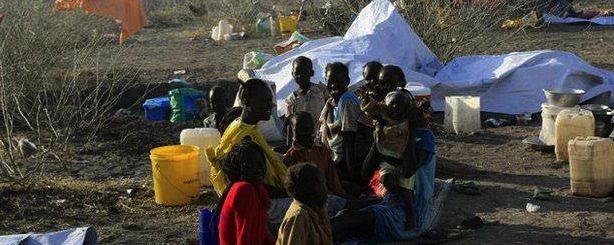Aid workers have been able to access more areas around Malakal in Upper Nile State in recent days, apparently owing to improved security, the UN reported today.
The UN humanitarian coordination agency (OCHA) stated in a Situation Report current to 30 January, “Access in and around Malakal town improved, with aid workers able to move more freely.”
An assessment team on Thursday visited Melut area, north of Malakal, where there are approximately 35,000 people displaced. The conditions are poor with sanitation problems and overcrowding, but water and primary health care services are available.
However, in neighboring Jonglei State attempts by aid agencies to deliver nutrition and other supplies failed because they could not get flight and landing clearance for chartered planes: “Two nutrition partners were denied clearance this week to Akobo, Jonglei State.”
Overall the UN estimate for total displacement has risen to 863,400, with that figure broken down into 740,000 IDPs and 123,400 refugees.
Latest information suggests the UN still has not found a definite solution for the overcrowding at its two main bases in Juba, where together 43,261 people are registered and fear to leave. OCHA states, “site expansion continued to address overcrowding.”
Cholera has also become more likely owing to poor sanitation and the absence of health services in many areas. OCHA reports, “The heightened risk of cholera remains, hence need for oral cholera vaccination. Limited partner presence on the ground remains challenging.”
Photo: Displaced people in Upper Nile State (Reuters)
Related: Key humanitarian updates, 28 Jan.




